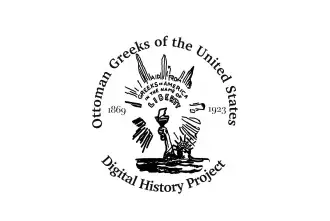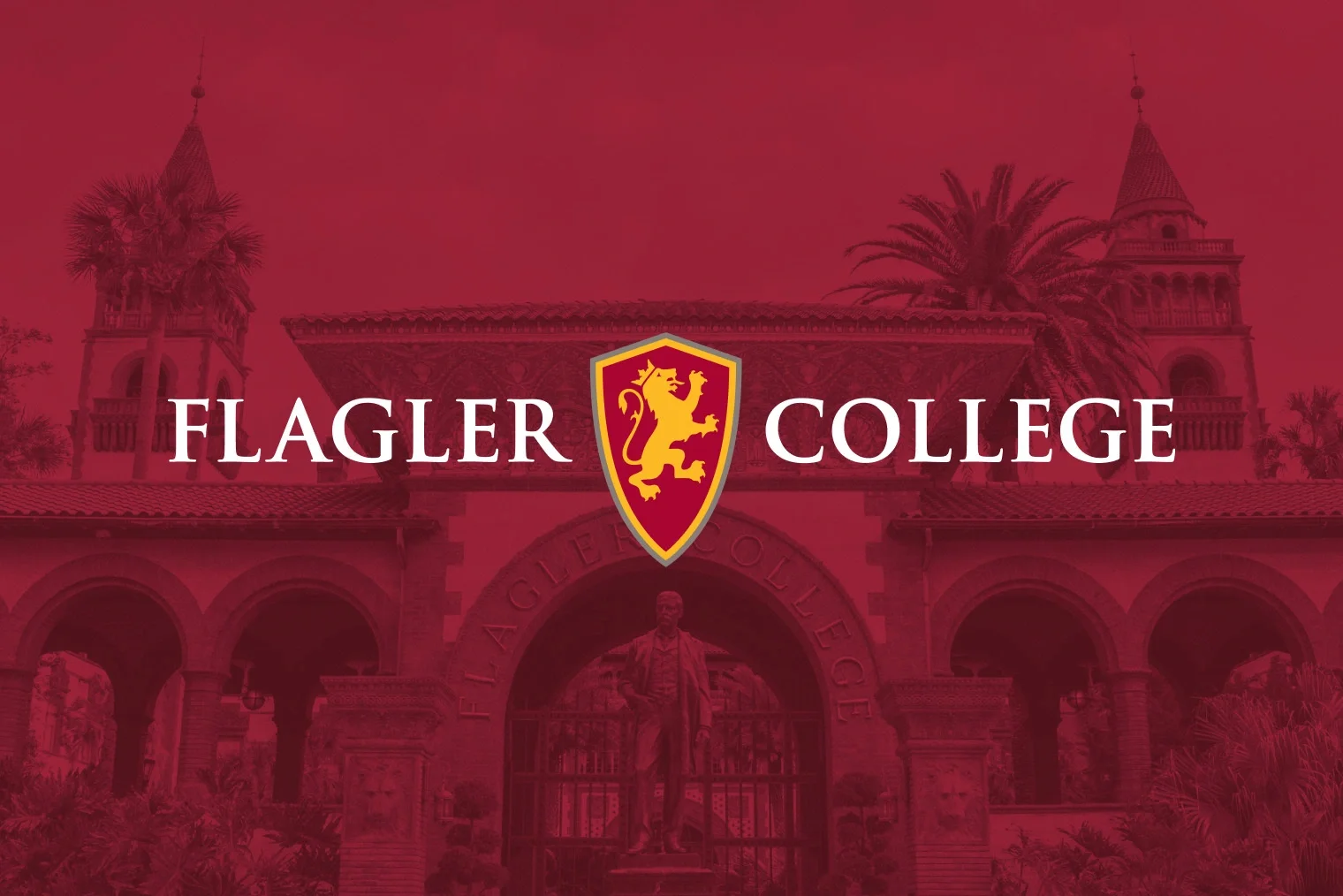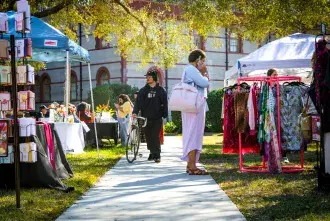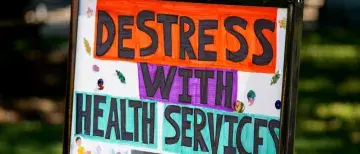
“Students today face unique challenges—ranging from mental health concerns to navigating a digital world that constantly demands their attention,” Senior Director of Health & Wellness Mary Tinlin said. “In response, we've expanded our resources to address a broader spectrum of wellness needs.”
The Health & Wellness team facilitates a wide range of services and resources, including Health Services, Counseling Services, the Campus Assessment, Referral and Evaluation (CARE) Team, Case Management, and Community Outreach and Education.
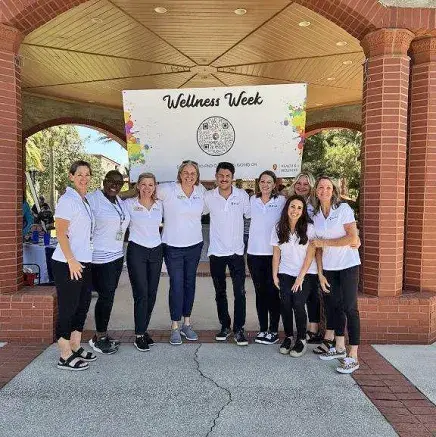
As Director, Mary Tinlin has led a shift “beyond traditional counseling and physical health services,” emphasizing the importance of fostering a supportive community that empowers students to “take charge” of their personal wellness.
With Flagler’s annual Wellness Week coming up (Sept. 9 - 13), we asked Tinlin to give us insight on the intention behind the department’s comprehensive student services:
How can students get the most value out of the upcoming Wellness Week?
“Attend the events! Most activities are scheduled within a 2- to 3-hour window, allowing for participation either before or after classes. We have an exciting lineup of events planned, ranging from therapeutic art sessions like affirmation jars and kindness stones, to a Wellness Fair featuring numerous campus and community partners. Join us for a ‘Snail Mail Social’ where you can experience typing on vintage manual typewriters and receive on-demand poetry. Thursday is Tranquility Day with therapy dogs and complimentary chair massages, and Friday concludes with a thrilling Ninja Nation obstacle course.”
How do its distinct services collaborate to support the department’s mission of fostering an “institutional culture of holistic wellness”?
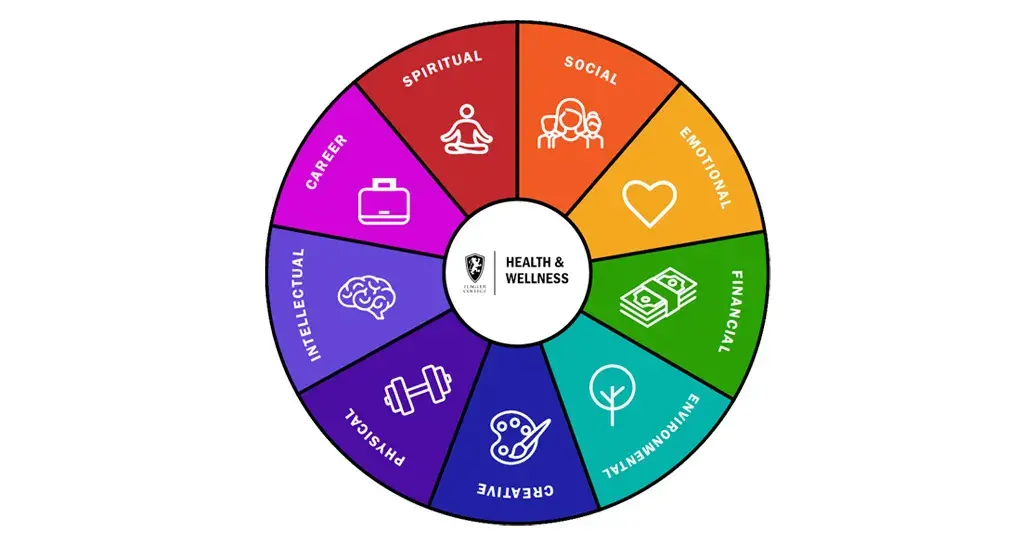
“All our supportive services, outreach, and education efforts are informed by our Wellness Wheel with its 10 Dimensions of Wellness (Social, Emotional, Financial, Environmental, Creative, Physical, Intellectual, Career, Spiritual, and Digital.) By providing access to resources, educational tools, and individualized support, we strive to empower each member of our community to cultivate personal wellness values that will last throughout and beyond their time at Flagler.”
What are some common misconceptions students have about the Counseling Center services?
“The most common misperception about the counseling center is that they are too busy, and you can’t get an appointment scheduled quickly. While the center is busy, it is sufficiently staffed to permit the scheduling of appointments within a 3-to-4-day window of the request. Another misperception relates to confidentiality: counseling services are strictly confidential within the limits of the law and information is only shared with the student's explicit written consent.”
For more information about Flagler’s FREE counseling, visit the Counseling Services webpage. Students can stop by the Counseling Center, located at 65 Valencia St., to schedule an appointment. If you have any other questions, please email counseling@flagler.edu or call the Counseling Center at (904) 819-6305.
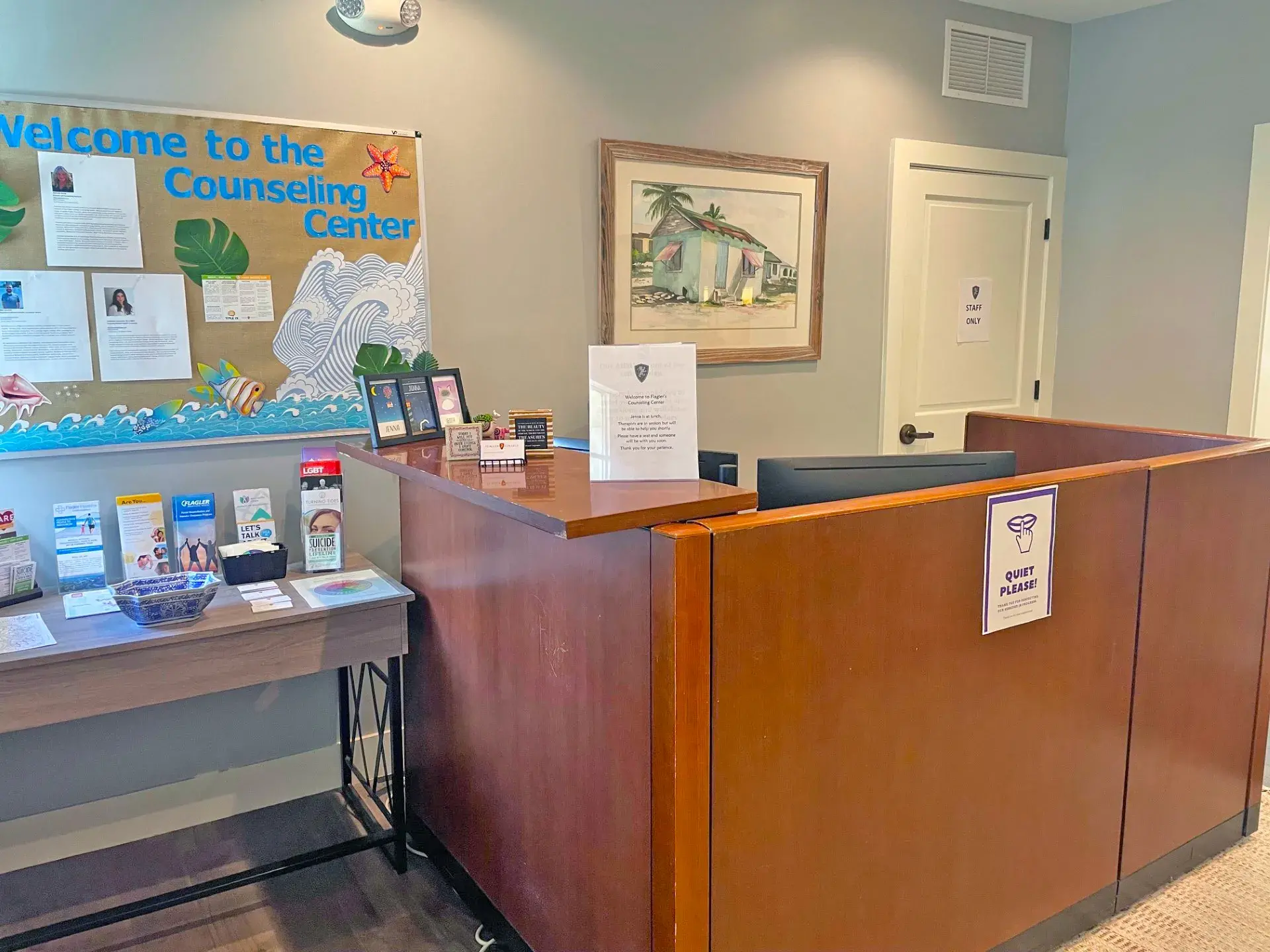
Counseling Center reception desk
How do you address stigma associated with seeking counseling among students?
“Thankfully, there has been much progress made with reducing the stigma associated with mental health, but there is always room for improvement. We utilize a multifaceted approach that focuses on education, normalization, and creating a supportive environment. We educate students about the benefits of counseling – emphasizing that it is a healthy, proactive choice for managing mental health. We highlight that seeking help from a counselor is as normal as going to the doctor for a physical health concern... By integrating mental health into broader wellness initiatives, it becomes just another aspect of taking care of oneself.”
Tell us about some of the new initiatives being led by the Health & Wellness Department.
The Come Grow with Us Project: “offers students a chance to build community by working alongside their peers on a project they are involved in from inception (planting the seeds) to maintenance (watering and pruning) to fruition (harvesting). For many, this will be their first experience with hands-on gardening. Research shows that working with soil can positively impact brain chemistry, much like an anti-depressant.... In addition to building community amongst participants we hope to provide the fruits (and vegetables) of our labor to the student food pantry.”
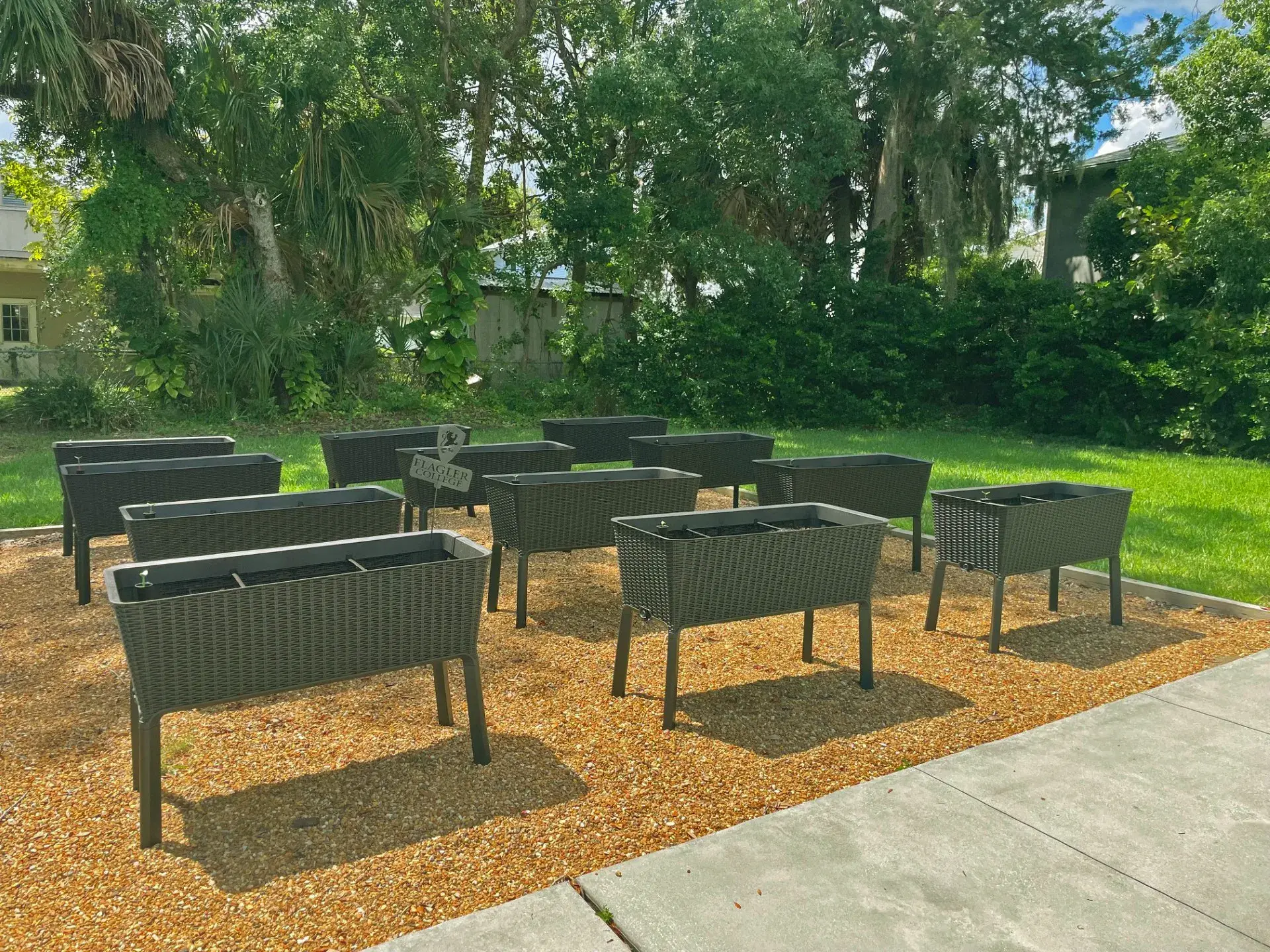
Raised beds behind Counseling Center for "Come Grow with Us"
The Zen Den at Sebastian House: “was created to encourage students to slow down, breathe, reflect, and center themselves—practices essential for holistic health. This space is thoughtfully designed to promote calm and well-being, addressing the growing concern of mental health among college students nationwide... It's not a study area but a place to breathe, rejuvenate, and return to academic work feeling restored.”
The Wellness Ambassador Program: “trains and equips student leaders to promote and model wellness to their peers through shared knowledge, programs, campaigns, and social media... Peer ambassadors provide relatable, peer-to-peer support, creating a more approachable and understanding environment for students... Ambassadors are charged with fostering a greater sense of community, encouraging more involvement in activities, events, and initiatives, ideally leading to a more vibrant and cohesive community.”
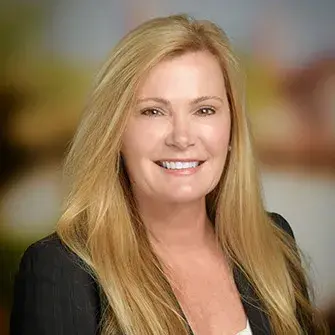
About Mary Tinlin
Mary Tinlin has been with Flagler for over 30 years and has witnessed significant changes in the College’s approach to student wellness.
“When I first started, wellness was often seen as a support service accessed only in times of crisis,” Tinlin said. “Now, it has evolved into a core component of the college experience, focusing on prevention, education, and fostering a balanced lifestyle.”
What motivates you to continue your work in student health and wellness, and what are you most proud of in your career?
“...The opportunity to make a meaningful impact on students' lives. Seeing them grow, overcome challenges, and develop skills that promote lifelong well-being is incredibly rewarding. I am driven by the knowledge that our efforts can help students not just succeed academically, but also lead healthier, more balanced lives. What I am most proud of in my career is being part of the evolution of our wellness programs. I’ve been fortunate to witness—and contribute to—our shift toward a more comprehensive and proactive approach to student well-being. Knowing that we’ve created an inclusive, supportive environment where students feel safe to seek help, explore wellness practices, and connect with others is a source of great pride.”

